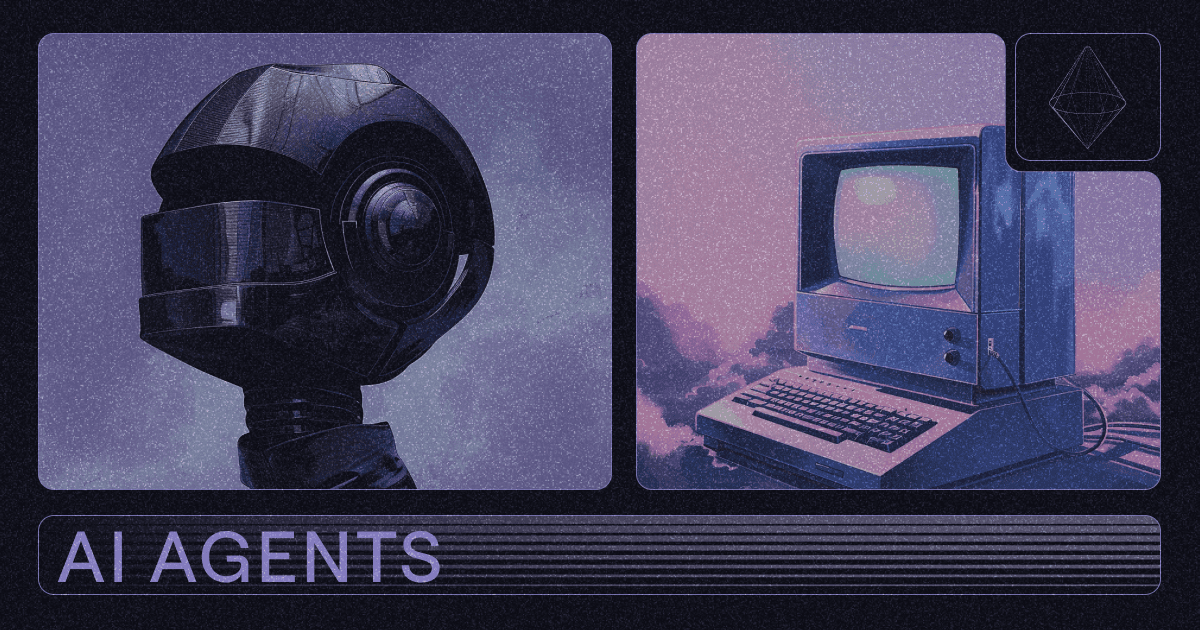Why we had to build AI Agents
Apr 20, 2024
Craig Hosang CEO & Founder at Multiplayer

First, a look back

Remember when this was a funny joke? The year was 1986 and Star Trek fans were used to the idea of computers you could talk to after years of watching the Sci-Fi series. The idea that we could simply express instructions to our computers was a given, and we were just waiting for reality to catch up.
Well. I think we’re about to surpass Star Trek, hear me out.
ChatGPT dropped 16 months ago, at the end of 2022, and already we’re seeing how people have changed their computing habits. College students ask GPT to teach them concepts that they didn’t quite grasp from their professors. Marketers no longer focus as much on the art of copywriting, but on deploying the marketing frameworks for AI to use when it writes. We see software engineers asking GPT to find bugs in the codebase, and increasingly to suggest the fixes. Parents and their children co-create bedtime stories based on their imaginations, shifting the ritual of reading to more personalized experiences.
The idea of talking to a computer (whether by typing or speaking) and getting an output based exactly on your query is rapidly becoming the norm. So what comes next?
Let’s go back to the “map”

Source: The AI Revolution: Our Immortality or Extinction
Back in 2015, Tim Urban of “Wait But Why” fame, wrote a seminal piece on what to expect from the future of AI that was rapidly approaching. I can’t possibly do the (two part) piece justice, but the takeaway was this: humans generally are used to linear growth, however, AI progress will be non-linear. What we perceive as AI’s capabilities will seem small at first, but compound rapidly.
I’ll be honest. I literally had a day, about a month ago, where my brain “melted” and I couldn’t work anymore for the rest of that day. Quite simply my concept of what was technically possible had changed so much in one day that I had to take a pause and regroup. I imagine many of us are experiencing this in some way, shape, or form. Our brains are recasting our concept of “the possible” to account for what we’re learning.
Star Trek = ~40 years ago
Wait But Why = ~10 years ago
GPT-3 = ~1.5 years ago
??? = next 6-12 months
Don’t look back, look forward
As people have gotten used to directly engaging with ChatGPT—asking specific questions and getting personalized answers—we've observed people starting to understand how powerful the idea of hyper-personalization can be beyond simple and straightforward Q&A.
The day my brain melted was the day we saw what AI agents could do with our own data and integrations.
AI agents fundamentally expand the capability of LLMs to take action, often autonomously. AI agents can understand stated goals, create a plan, execute steps to achieve those goals, and evaluate their own performance. At Multiplayer, we've also built API integrations so that AI agents can do everything a human can do in the most common work applications. When we combine those two capabilities, AI becomes not just a tool for query and response, but a tool that can execute hyper-personalized instructions across all of your software tools.
"How quaint," said Scotty, looking down at the keyboard in that scene from Star Trek. We all thought talking to a computer was the future. But this idea now seems like it will become quaint as well. We're seeing the very first glimpses of computers that can work on our behalf—through operating the tools humans would use themselves—and use reasoning to figure out the steps necessary to accomplish more abstract tasks. It's not about talking to a computer, we're entering an era where we can give AI the agency and capability to accomplish goals.
AI is becoming less about using a computer, and more about managing an outcome via one.
AI agents are the next step on the journey to increase the capabilities of what computers can do. As I discussed in an earlier post, we're in the era of the System of Action.
The thing that strikes me looking back on Sci-Fi references is that the software rarely anticipated our needs, understood what we were trying to accomplish, and guided itself through a multi-step workflow to get things done on our behalf. We can’t use our old Sci-Fi stalwarts to help us imagine as clearly where the future is going. We have to lean into it ourselves.
p.s. Upon reflection, I suppose Star Trek TNG got something right: real world AI looks much more like the unique character Data and less like the ubiquitous ship's computer. At least it's not the Borg lol.
